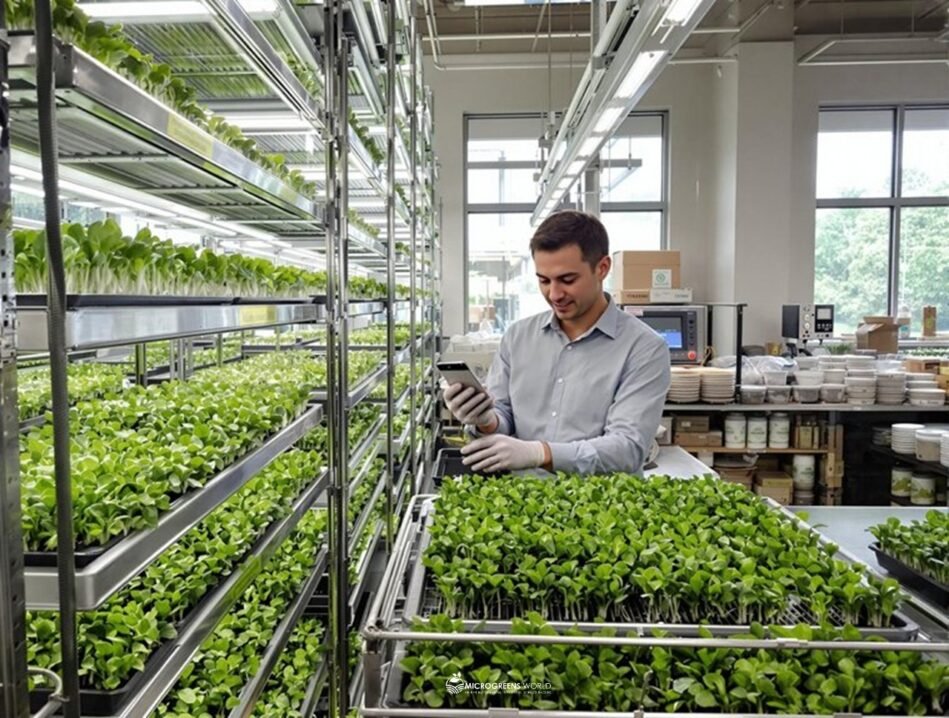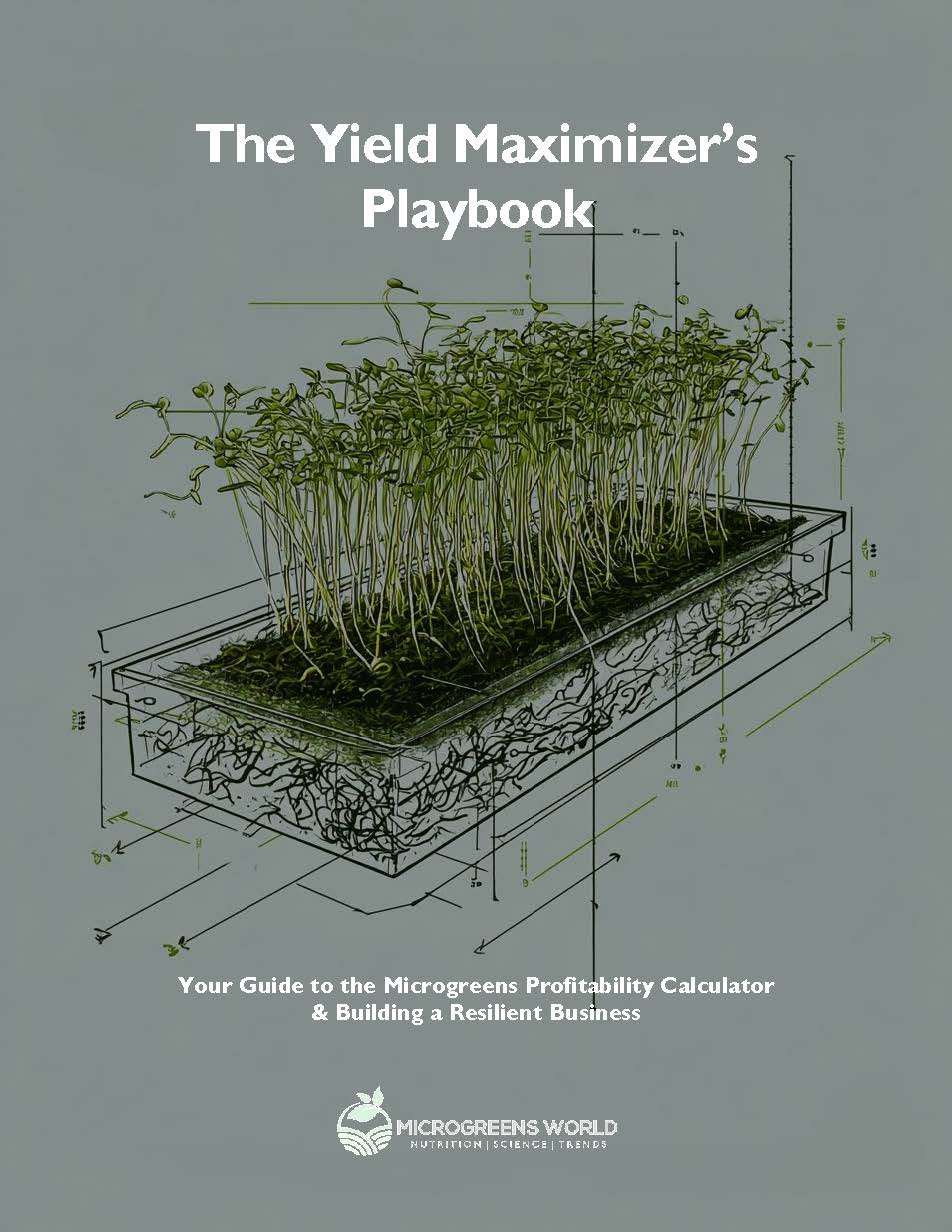When we started JPure Farms, we knew we couldn’t do it alone. From the beginning, we sought out success allies—people who believed in our vision and were willing to help us succeed.
I’ll never forget one of our biggest breaks. We needed a some warehouse to grow our operations, but we weren’t exactly the most creditworthy firm at the time. Despite this, our landlord believed in us. He took a leap of faith, leasing us the space we desperately needed. Without his trust and willingness to support us, we couldn’t have taken that critical step.
Success allies are individuals or entities–family members, mentors, industry colleagues–that provide essential resources to entrepreneurs without seeking profit or fees, thereby enhancing the venture’s survival prospects. Such alliances aggregate resources toward a common goal, mitigating risks and fostering sustainability.
But success allies aren’t just landlords or investors. Some of our earliest customers were just as vital. These weren’t just patrons; they became advocates for JPure Farms. They told their friends, shared our story, and helped us build a reputation before we even had one. Their support not only kept us afloat in the early days but also gave us the confidence to keep moving forward. These allies—both expected and unexpected—were the foundation of our success and a constant reminder that no one builds a business alone.
In this post I will show you how to handle common challenges when starting your business. Success allies help make starting a microgreens business easier by sharing useful resources and knowledge without asking for payment.
Key Takeaways
- Local chefs and farmers share growing secrets and business tips to help beginners avoid expensive mistakes and run their operations smoothly.
- Restaurant owners become key allies by placing regular orders and providing feedback about what customers want and how to improve quality.
- Building strong connections with suppliers means getting good prices on seeds, soil, and equipment, which helps keep the business stable.
- Having family members pitch in saves money on workers and provides flexible help during the crucial early months of starting up.
- Market organizers and food writers help spread the word about your business and introduce you to customers who care about eating healthy food.
Build A Commercial Microgreens Startup
In this free 10-lesson email course, we explain why you shouldn’t create a “business plan.”
From there, we take you on a journey of discovery that has been trekked by tens of thousands of other entrepreneurs just like you.
We respect your privacy. Unsubscribe at any time.
Understanding Success Allies
Benefits of Success Allies
Identifying Potential Allies
Leveraging Family Support
Cultivating Industry Connections
Engaging Supplier Alliances
Harnessing Customer Advocacy
Aligning Resource Needs
Fostering Mutual Goals
Building a Sustainable Network
Related Questions
Wrap-up
Research

Success allies are key supporters who help microgreens businesses grow by providing resources, knowledge, and guidance without asking for payment. These important allies can be experienced growers, restaurant owners, farmers’ market coordinators, or family members who offer their time, expertise, or money during the start-up period.
Success allies help in many ways, from sharing growing tips to opening doors to new markets. To build a network of allies, microgreens growers need to study their industry carefully and find allies who’ve useful resources and share their values about sustainable farming. Utilizing the snowball technique helps expand your network by asking existing contacts to recommend other potential allies. Working with allies who can deliver personalized service ensures your business receives guidance tailored to its unique needs and challenges.
Good examples of strategic allies include:
- chefs who agree to buy their products regularly,
- agriculture experts who teach growing methods,
- and business advisors who share management skills.
Making these alliances last requires clear communication, being dependable, and creating arrangements that benefit everyone involved, not just making simple sales.
With these strong relationships in place, a microgreens business has a much better chance of doing well.
Leveraging Family Support
Family support can make a big difference when starting a microgreens business. When relatives help with the work, they provide both physical labor and emotional support. This team effort creates a strong base for the business to grow and succeed over time. The home-based model allows families to work together while maintaining flexibility in their schedules. Having a stay-at-home spouse can significantly strengthen business operations while ensuring family needs are met.
| Family Role | Business Function | Strategic Value |
| Spouse/Partner | Financial Support & Operations | Makes business more stable and reduces risks |
| Children | Production & Packaging | Provides flexible workers and future leadership |
| Extended Family | Marketing & Sales | Helps reach more customers |
Including family members in the business requires finding the right balance between work and home life. Business owners need to set clear boundaries while making the most of working together. Family members often become the best success allies because they share common goals and trust each other. They can share resources and handle risks together.

Entrepreneurs starting a microgreens business must identify possible allies in their local market. Success in growing and selling microgreens depends on building strong connections with important contacts who can help with support, supplies, and selling opportunities during the first stages of business.
Local restaurants and specialty food stores are key potential allies. Chefs and food buyers who value fresh microgreens can become strong supporters while placing regular orders. Creating strong relationships with these buyers can lead direct sales profits through consistent purchasing agreements. Offering product samples to local chefs is an effective way to demonstrate quality and gain their trust.
Similarly, grocery stores and food co-ops can help by providing shelf space and sharing what customers want, especially which microgreens sell best.
Farmers markets and CSA programs offer chances to meet health-focused customers while building connections with experienced sellers who can share delivery routes and marketing tips.
Business owners should also look for online allies through social media, where food bloggers and local food supporters can help spread the word about their products.
The path to selling microgreens successfully requires building these relationships step by step, making sure each ally’s goals match the business’s plans while keeping good communication and providing reliable products.
Benefits of Success Allies
Strong alliances offer many benefits that can determine whether a microgreens business succeeds or fails when starting out. When business owners find and work with helpful allies in the microgreens industry, they get access to important resources that lower their risks and help them grow, especially during the crucial beginning phase.
Success allies help in three main ways that are key to keeping a business running. First, experienced allies share knowledge and guidance about growing methods, controlling pests, and running operations efficiently, which helps new owners avoid making expensive mistakes. Having allies who practice daily mindfulness can also enhance decision-making and stress management during challenging times. The ability to implement vertical farming techniques can significantly increase production capacity while minimizing space requirements.
Second, allies make it easier to reach customers by connecting new businesses with local restaurants, specialty stores, and existing delivery networks, helping them make money sooner.
Third, working together with allies reduces costs through shared spaces, group purchasing, and pooled resources, which helps new businesses manage their money better while growing.
These benefits, when used well through good relationships with allies, build a strong base for lasting business growth. This is especially true when owners actively build and keep connections with multiple allies who help with different parts of the business.

Successful microgreens businesses depend on three important connections: local restaurants, other growers, and suppliers. These key alliances show how working together can help a new business grow by sharing resources and supporting each other.
When selling microgreens to restaurants, focus on building strong relationships by delivering quality products, being reliable, and providing great service. With market growth continuing at a 6.40% CAGR through 2029, now is an ideal time to establish these connections. Starting with two restaurant racks at home shows how simple beginnings can lead to significant growth.
The best business connections often come from actively networking within the local food community. Build professional relationships by attending industry events, trade shows, and reaching out directly to potential allies. This creates a network that helps your business grow and reach new markets.
Key steps to build connections:
- Work with established restaurants to get regular large orders
- Join local food grower groups to share resources
- Team up with related businesses for joint marketing
- Build relationships with suppliers for better prices and market information
- Attend chef networking events to show off your products
These industry connections help businesses succeed by providing market access, knowledge sharing, and better use of resources.
Engaging Supplier Alliances
Success alliances with reliable suppliers help microgreens businesses build a strong foundation for long-term growth. Smart business owners know that suppliers can be more than just sellers – they can be allies who offer valuable resources like industry knowledge, flexible payment options, and solutions tailored to specific business needs.
Finding reliable suppliers takes careful research and evaluation. Key factors include product quality, on-time delivery, and how quickly they respond to customer needs. Successful microgreens businesses often ally with specialized suppliers like Johnny’s Selected Seeds or Bootstrap Farmer for high-quality seeds, growing materials, and equipment.
These suppliers frequently become key allies as new businesses grow. Good supplier relationships require clear communication, set expectations, and trust built through regular contact and honest feedback.
These alliances are especially important when starting a business with limited funds. Smart business owners look for suppliers who support growing businesses by offering flexible ordering minimums, adjustable payment schedules, or technical help.
This turns basic buying relationships into valuable alliances that help businesses succeed long-term.

While good supplier relationships are important, loyal customers who speak positively about a microgreens business can become powerful allies for success.
In today’s competitive microgreens market, building customer advocacy requires a clear plan for developing relationships. This starts with personalized service and consistently high-quality products that turn happy customers into enthusiastic supporters of your brand.
Through planned engagement and actively seeking feedback, businesses can build a network of supporters who naturally promote their products to others.
Key steps include:
- Setting up regular ways to get customer feedback through surveys and conversations
- Creating free sample programs with rewards to encourage people to try products
- Designing custom packages that match what specific customers want
- Following up regularly to build stronger customer connections
- Creating rewards for customers who refer new business
Getting customers to spread the word about your business goes beyond basic customer service. It includes relationship-building strategies like unexpected thank-you gifts, special deals on bulk orders, and smart use of social media.
Aligning Resource Needs
A microgreens business needs to match its requirements with the resources it has on hand. This means looking at what the business can do internally and what outside help it needs.
Success allies, like experienced growers, suppliers, or investors, can help fill important gaps when starting up. This is especially true when getting high-quality seeds and growing materials, which are essential for producing great microgreens.
When looking carefully at what resources are needed, it becomes clear that knowledge about growing microgreens often requires connecting with mentors or industry experts. These success allies can share their practical knowledge without asking for immediate payment in return.
These relationships are particularly helpful when finding reliable suppliers for important materials, as experienced allies can suggest trustworthy vendors and might help get better prices.
Success allies can also appear unexpectedly, such as property owners who offer growing spaces at good rates, or established growers who share their customer lists.
The important part is finding potential allies who want to help and can provide specific resources that match what the business needs most, whether that’s technical knowledge, access to customers,

Success allies do well when they share common goals and understand what each other needs. When creating a microgreens business plan, building strategic alliances that help both sides grow becomes vital for keeping the business running, especially as business owners explore selling microgreens online and in stores.
When microgreens growers and their success allies – like local restaurants, farmers’ markets, or specialty food stores – have matching goals, they build strong, lasting relationships that help everyone involved.
Main areas where shared goals build lasting alliances:
- Setting up learning workshops that increase both the grower’s income and customers’ understanding
- Working with local chefs on marketing campaigns to highlight different microgreen types
- Finding eco-friendly packaging that works for both growers and environmentally conscious customers
- Setting up quality checks that meet restaurant standards while keeping operations efficient
- Creating direct sales channels to customers that work alongside wholesale business
By carefully developing these shared goals, success alllies become key to the company’s growth, offering resources, market opportunities, and support that goes beyond typical seller-buyer relationships.
This two-way approach ensures both sides are invested in each other’s success, building a strong base for business growth.
Building a Sustainable Network
A strong network depends on finding and working with reliable allies who can help your business grow and succeed. When starting a microgreens business, these allies typically include suppliers, experienced advisors, and customers who believe in sustainable farming and want to help beyond just buying and selling.
| Network Component | Allies Role | Strategic Value |
| Resource Providers | Equipment/supplies at better prices | Lower startup costs |
| Industry Mentors | Share knowledge and advice | Faster learning |
| Local Restaurants | Regular bulk orders | Steady income |
| Market Alliess | Help with delivery and marketing | Reach more customers |
| Community Members | Personal recommendations | Build trust in brand |
While business partnerships usually need formal contracts, building relationships with success allies focuses more on shared beliefs and trust.
These connections, built on honest communication and dedication to sustainability, often matter more than traditional business deals. Success allies share their expertise, resources, or customer networks without always expecting money in return. This creates a strong support system that helps businesses survive their challenging first years.
Related Questions
How Do You Gracefully End Relationships With Success Allies Who Become Toxic?
Document clear examples of harmful behavior and keep detailed records. Set firm boundaries by having direct, professional conversations about what’s no longer acceptable. End any business agreements formally in writing, following proper procedures. Get advice from a lawyer if the situation involves contracts or potential legal issues. Stay calm and professional while being direct about ending the relationship, making decisions that protect your company.
What Legal Protections Should Be in Place When Working With Success Allies?
Written contracts should protect success allies by clearly stating what information must stay private, what competitive activities are not allowed, how much legal responsibility each person has, and how they will share resources. These documents help avoid confusion while keeping the relationship friendly and helpful.
Can Competitors Become Success Allies Without Compromising Business Secrets?
Competitors can work together successfully while keeping their business secrets safe. By setting up clear agreements, rival companies can share basic resources, general market insights, and extra customers that they can’t handle themselves. The key is establishing firm limits around confidential information and company secrets that neither side will cross.
How Frequently Should You Communicate Updates to Your Success Allies?
Communication with success allies works best on a set schedule: share monthly updates and tell them right away about any big changes. Meeting regularly helps build trust and keeps everyone involved. Every three months, plan a deeper review to make sure you’re still working toward the same goals and to build stronger allies.
Should Success Allies Receive Formal Recognition or Acknowledgment in Business Documentation?
While success allies should get recognition in business documents, there are important reasons for doing this. First, it shows that we value their help and support. Second, putting their names in official documents makes business relationships stronger and clearer. Third, it holds everyone accountable for their roles. Finally, keeping a record of who helped with what creates a useful history that can make future business deals smoother and more successful. This kind of documentation serves as proof of past allies and can guide new business relationships.
Build A Commercial Microgreens Startup
In this free 10-lesson email course, we explain why you shouldn’t create a “business plan.”
From there, we take you on a journey of discovery that has been trekked by tens of thousands of other entrepreneurs just like you.
We respect your privacy. Unsubscribe at any time.
Wrap-up
Success allies play a vital role in starting a lasting microgreens business by offering key support and resources that can make or break a new venture.
By building strong connections with family, experienced growers, and loyal customers, new business owners can find solutions to their challenges and overcome early hurdles. When owners invest time in developing these relationships before opening their business, they create a strong network of support.
This network helps turn big challenges into smaller, more manageable tasks, which greatly improves their chances of succeeding in the long run.
Research
Howarth, J. (2023, November 3). What Percentage of Startups Fail? 80+ Statistics (2022). Exploding Topics. https://explodingtopics.com/blog/startup-failure-stats
Yon, M. (2024, January 17). 40+ Startup Failure Statistics For 2024 – Growth List. https://growthlist.co/startup-failure-statistics/
Dubey, S., Harbourne, N., Harty, M., Hurley, D., & Elliott-Kingston, C. (2024). Microgreens Production: Exploiting Environmental and Cultural Factors for Enhanced Agronomical Benefits. Plants, 13(18), 2631. https://doi.org/10.3390/plants13182631
Sumesh Dadwal, et al. “Contrasting the Journey of Solopreneurs and Entrepreneurs in Business Success- a Qualitative Inquiry.” International Journal of Entrepreneurship and Small Business, vol. 56, no. 1, 5 July 2024, https://doi.org/10.1504/ijesb.2025.10065180.
Maureen Lupunga Malesu, and Pavel Syrovátka. “What Are the Critical Success Factors for Small Farming Businesses? Evidence from Zambia.” Journal of the International Council for Small Business, 26 Apr. 2024, pp. 1–23, https://doi.org/10.1080/26437015.2024.2336455.
Business Disclaimer
The information provided in this article and related materials is for educational and informational purposes only and should not be considered specific business, financial, or legal advice. While we strive to provide accurate and current information, business conditions vary widely by location, market, and circumstance. Always consult with qualified business, financial, and legal professionals before making any business decisions or investments. The author and publisher are not responsible for any business outcomes, financial losses, or legal consequences resulting from the use of this information. Readers assume full responsibility for their business decisions and acknowledge that success in microgreens or any business venture cannot be guaranteed.









